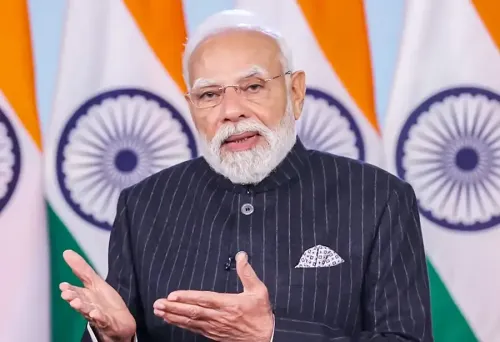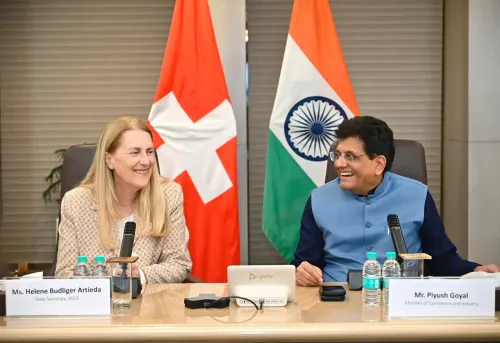Osamu Suzuki, the Pioneer of India's Automotive Revolution with Maruti 800, Passes Away

New Delhi, Dec 27 (NationPress) Osamu Suzuki, who guided Suzuki Motor Corp for more than 40 years and transformed India's automotive sector with the launch of the well-loved Maruti 800 compact car, has passed away at the age of 94.
Suzuki succumbed to lymphoma on December 25, as stated by the company.
A former banking professional, Osamu Suzuki found his way into the automotive industry through his marriage to Shoko Suzuki, the granddaughter of Michio Suzuki, who established the predecessor of Suzuki Motor in 1909. Following Japanese tradition where there are no male heirs, Osamu Suzuki adopted his wife’s surname.
His venture into India was pivotal, as the vast market, burdened with outdated technology from Ambassador and Fiat cars from the mid-60s, created an immense demand for the Maruti 800. Customer waiting lists extended up to three years, and the car was sold at a premium in the used car market.
Suzuki Motor agreed to establish a joint venture with the Indian government just outside New Delhi and acquired a 26 percent stake in the state-owned manufacturer Maruti Udyog in 1982. By December 1983, the venture successfully launched the Maruti 800 small car, which quickly became a sensation.
Maruti, now a subsidiary of Suzuki Motor, swiftly emerged as the largest car producer in India and continues to hold over 40 percent of the market share.
Today, Suzuki ranks among the leading global motorcycle manufacturers, selling approximately 1.9 million units in the year ending March 31.
Osamu Suzuki’s tenure of over 28 years as president made him the longest-serving leader of a worldwide automaker. After resigning as president in 2000, he became the Chairman and CEO of Suzuki Motor. He returned as president at the age of 78 in December 2008, amid a forecast of the company's first profit drop in eight years due to the global recession.
In June 2015, Suzuki transferred the presidency to his son while retaining the roles of Chairman and CEO, but resigned as CEO following a scandal regarding incorrect fuel economy claims. The company acknowledged using unauthorized methods to evaluate vehicle fuel efficiency in Japan, which tarnished its reputation and led to a significant drop in share prices.
Known for his austere lifestyle, Suzuki maintained a habit of flying economy class well into his later years.
Osamu Suzuki relinquished his CEO title and accepted a 40 percent salary reduction while continuing as Chairman, a position he held until 2021, coinciding with the significant shift towards electric vehicles disrupting traditional automakers globally.









